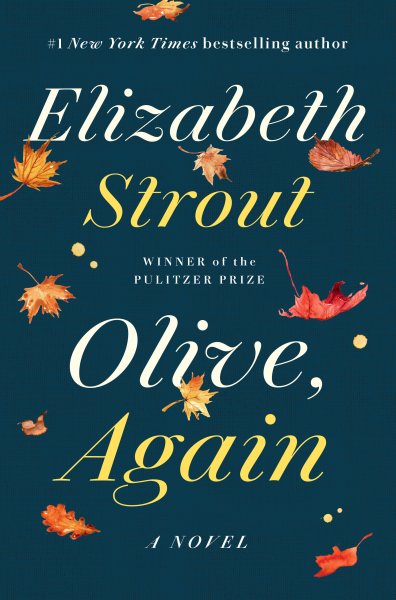By Amy Lyles Wilson. Special to the Clarion-Ledger Sunday print edition (October 13)
 If you are already charmed—and simultaneously put off—by Olive Kitteridge of Crosby, Maine, welcome back. If you’re new to Elizabeth Strout’s expertly crafted small-town characters who face the same challenges as the rest of us, we’ve been waiting for you. Elizabeth Strout has released a sequel to her beloved book in this year’s Olive, Again.
If you are already charmed—and simultaneously put off—by Olive Kitteridge of Crosby, Maine, welcome back. If you’re new to Elizabeth Strout’s expertly crafted small-town characters who face the same challenges as the rest of us, we’ve been waiting for you. Elizabeth Strout has released a sequel to her beloved book in this year’s Olive, Again.
Olive’s social ineptness has not improved since Strout introduced her to us in 2008’s Olive Kitteridge, for which Strout won the Pulitzer Prize for Fiction. Olive continues to utter just about every thought she seems to have, regardless of how it might sound or whom she might offend. You want to love her for it, though, as more than once Olive says something you wish you’d had the nerve to say yourself.
You might describe Olive as crusty, but you must also concede that she has moments of thoughtfulness. Just as you are tempted to label Olive as self-absorbed, she shifts her focus to someone who might otherwise be overlooked. Even though she tends toward cantankerous, she is neither all bad nor all good. Indeed, there is something quite captivating about Olive Kitteridge.
Whether she’s chatting with a now famous former student she misjudged or trying to flee a baby shower, navigating a second marriage or trying to connect with her grandson, Olive is steadfastly herself in these pages. As we move into old age with Olive, along the way Strout seamlessly jogs our memory regarding characters and situations we first encountered in Olive Kitteridge, allowing readers to move through Olive, Again without having to search too hard for the backstory. Like Olive Kitteridge, Olive, Again is a collection of linked short stories. Olive doesn’t feature prominently in all of them, but you know she’s there.
Olive is in her eighties when we leave her this time, dealing with her declining body and confronting her wonderings about life: how she’s lived it, what it all means, where she might have gotten it wrong. The last chapter may not seem as well developed as others in part because the reader starts to miss Olive even before the closing sentence.
If we pay attention, Olive Kitteridge of Crosby, Maine, teaches us how to hold our tongue, and when to speak our piece. She shows us how to embrace someone on the other end of the political spectrum, and reminds us that love takes many forms. That might sound like a lot to expect from a work of fiction, but Strout is expert at her craft. Her literary skills are complemented by her respect for her fellow human beings and for the reader. For the power of story.
Jackson native Amy Lyles Wilson, M.A., M.T.S., is a writer and teacher in Nashville who helps people tell the stories they need to tell. Visit her on the web at amylyleswilson.com.


Comments are closed.